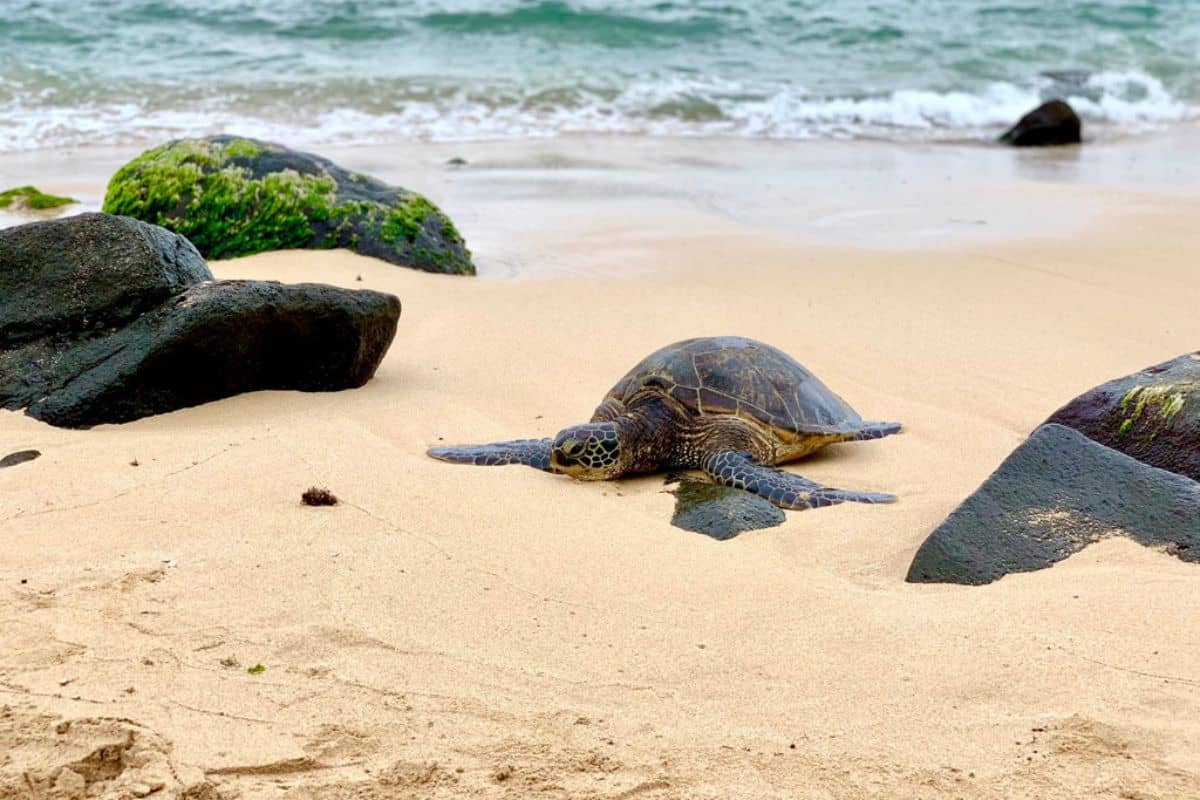How to Move to Costa Rica with Geoarbitrage (2025)
Today is exciting because I’m finally able to announce that we are moving to Costa Rica with geoarbitrage!
You can listen to my podcast, Financial Self-Care, on Apple Podcasts, Spotify, or anywhere you like to listen!
I want to start with tell you: I will still be working.
Two weeks ago, I released a podcast episode titled How to Take a (Travel) Sabbatical with Susie Chau. It’s a fantastic episode about taking time off of work – and not just waiting until retirement age to travel for extended lengths of time.
However, what me and my family are doing is not a sabbatical. We intend to move there for one year. And during that time. I will still be seeing clients, virtually – just as I am now – while living in Costa Rica. This is a concept called Geoarbitrage.
What is Geoarbitrage?
If you’ve never heard of geoarbitrage, you’re not alone. Geoarbitrage is a condensed way of saying Geographic Arbitrage.
It’s a relatively new concept coined by Tim Ferriss, the author of The 4-Hour Workweek, which was originally published in 2007. It sounds like fancy financial lingo or crazy tax terminology, but the concept is actually quite simple: If you work remotely, you can work from anywhere.
And anywhere can mean a place with lower cost of living (especially outside of the United States). Essentially, in some countries you can optimize your income and earnings by making the same wage you would in the United States, but your dollars go a lot further.
For us, specifically, with traveling to Costa Rica, we’re not necessarily thinking we will have a lower cost of living. However, we do intend to swap costs.
So as of now, in Minnesota, we pay $1,600 for our mortgage. We also assume about 1% of our home’s value for maintenance costs throughout the year. Our home is valued at just over $300,000 – so we guestimate we spend $3,000 per year on home maintenance, which comes to $250 per month, totalling $1850 per month on housing costs.
The idea is we will find a place to live in Costa Rica for under $1,850 per month, effectively swapping the cost of what we’re currently paying in housing.
Geoarbitrage & Laptop Lifestyle
In the last 6-months, we’ve been able to – relatively quickly – design our lives to allow for geoarbitrage.
Now, I don’t want this to seem like an overnight success story because it certainly has not been. And there is nothing I like less than a highlight reel.
In episode 7, I give the whole rundown on how we achieved something called Coast FIRE in the summer of 2024. After years of aggressively investing for retirement, we don’t have to put another penny into our retirement savings, and we will comfortably retire at 65-years-old.
You can go listen to that entire episode for the full story, but the condensed version – important for today’s episode – is that:
We were putting well over $4,000 per month into retirement savings. Now that we have chosen to pull back on retirement contributions and my business, which is fully remote, is covering our living expenses, my husband could leave his in-person corporate job. Effectively allowing us to live the elusive laptop lifestyle (AKA we can work and therefore, live, anywhere).
In the last decade, and particularly after COVID, there have been more and more opportunities for the laptop lifestyle. Remote jobs have become far more common, even in the “traditional” workplace.
But outside of that you can achieve the laptop lifestyle with jobs like:
- being a virtual assistant,
- freelance writing,
- blogging,
- having a YouTube channel or podcasting, or
- my personal route, starting an online business
- Like offering services virtually or creating courses in a specialized area
Often you’ll see people doing a combination of these. Like for me, I run a blog, a podcast, and offer virtual financial therapy and money coaching for individuals and couples.
Now, the laptop lifestyle isn’t for everyone, and that’s okay. Remember, my whole frame of thought when it comes to personal finance is that everyone has their own idea of what is ideal and your dream life is unique to you.
Some people love the fast-paced corporate grind and thrill of climbing that ladder. Others want 100-acres in the country to build their regenerative homestead complete with chickens and goats. Some people are perfectly happy in the suburbs, living the white-picket fence American dream.
Personally, I just want the option to be where the wind takes us. And right now, the wind is taking us to Costa Rica.

How to Move to Costa Rica with Geoarbitrage
So, that brings us the who, what, where, when, why, and how of moving to Costa Rica. Honestly, we’re still very early in this process, and we have a lot to figure out. But like always, I’m bringing you along on this new adventure.
I said this at the beginning of the episode, but I want to reiterate: I am not taking a sabbatical. I will be seeing my financial therapy clients as normal while in Costa Rica! (We may be good on retirement contributions, but we still need to make money for our regular day-to-day expenses!)
Why Are We Moving to Costa Rica?
So let’s start with why we are moving to Costa Rica. The obvious answer is because we can! And we chose Costa Rica for a couple of reasons:
- It’s in the same time zone as Minnesota, where we’re currently living. While Portugal has been on our hearts for a long time, the 6-hour time difference is intimidating. The hours in Costa Rica will be consistent with my current work schedule.
- The climate, landscape, and activities. I love Minnesota, even in the winter, but these polar vortexes are really getting old. Like give me 20-degrees and snow, we’re good. Don’t get me -15-degress and brown grass. That sucks. The climate in Costa Rica is warm all year round. There are beaches and mountains and a million outdoors activities, which we, of course, love.
- It’s easy to get to. It’s about a 5-and-a-half hour flight from Minneapolis, which is a haul, for sure. BUT you can get relatively inexpensive flights, and that’s a huge plus. In fact, I just bought round-trip tickets for only $225 each. We are hopeful that family and friends will come visit us, so we wanted to go somewhere that didn’t totally break the bank.
- And finally, travel has always been a huge part of our lives and we want to share that love of exploration and adventure with our kids. Costa Rica is a great opportunity to submerge them in new experiences and culture.
Who is Moving to Costa Rica?
So that effectively brings us to who is coming to Costa Rica.
More specifically, are we bringing our dog, Riot, with us? And the answer is yes. Every city we are considering moving to has vet clinics nearby (because Riot can be a bit of a menace.) And Costa Rica is a dog-friendly place. So yes, he is making the trek with us!

And, it goes without saying, but the kids are coming with us. For a lot of people, that bags the question: How are we schooling our kids?
Homeschooling while Living in Costa Rica
While we are in Costa Rica, our kids will only be 3 and 5-years-old. In Minnesota, to start Kindergarten, kids are typically 5-years-old by September 1st. Which Kinsley will not be. She doesn’t turn 5 until later in the fall. So when we move, our kids actually won’t even be school-aged.
However, we intend to homeschool them regardless. As it stands, the plan is to homeschool our kids through elementary school. This is for a ton of reasons, but the two most important are:
- We want the flexibility to do things like this, and
- I don’t love the amount of school-shootings happening in The States, and our country doesn’t seem to give a damn about making stricter guns laws despite gun violence being the number one cause of death of kids and young adults in America. And a ton of other countries like Canada, Japan, New Zealand, Australia, etc, proving that strict gun laws are, in fact, effective.
There is obviously a whole lot more to this conversation, but that’s for another day.
Suffice it to say, I’m perfectly content with my kids being homeschooled, and ideally worldschooling them as life allows.
We *might* put the kids in a part-time preschool program while in Costa Rica, for a Spanish immersion experience. We are exploring that option depending upon where in Costa Rica we end up!
Where Will We Live in Costa Rica?
So that’s a good segue into where we will be moving to in Costa Rica.
As of now, we’re exploring two big options.
The first is do we want to be in one location the entire time we’re there or do we want to move around every 4 months or so and check out different areas in the country. There are pros and cons to both, so we’ll be figuring that out over the next couple months.
AJ and I are taking a scouting trip in April to check out the locations we’ve been narrowing down.
If you’re familiar with Costa Rica, you may have heard of the Guanacaste province. That’s where Tamarindo is and a lot of expats move to. We don’t want to be in Tamarindo, but we are considering a place just south of there called Samara.
Samara
Samara has black sand beaches and calm waters, so we could actually swim. There’s also a ton of wildlife. But it’s a fairly hot beach town, and due to the location, it’s more expensive than the other areas we’re considering.
Nuevo Arenal
Another place we’re looking at is a mountain town called Nuevo Arenal which is situated on Lake Arenal. The climate is a little cooler and like 70s and 80s, instead of 90s like a lot of the beach towns. And it’s great for hiking, fishing, and exploring nearby volcanoes. The down side is it’s more remote and there are less amenities.
Jaco
And then finally, there’s a town called Jaco, which is considered the Central Pacific region. Jaco seems like a good option because it’s family-friendly and there’s more to do. But, it’s a surf town, so the water isn’t as good for swimming and it’s pretty touristy in the high season.
There are a ton of great places to be in Costa Rica, so again, none of this is set in stone. But as of now, these are all great options and we’ll explore more on our scouting trip!
When Are We Moving to Costa Rica?
Remember, this is a one-year endeavor.
We plan to leave after Christmas this year, in 2025. Presumably, our lease will start on January 1st. And we will be there until just before Christmas 2026.
How to Move to Costa Rica
So all of that brings us to how we’re moving to Costa Rica.
You already heard the front-end, big goal planning we did to turn our life into the laptop lifestyle, which is a huge part of our ability to move.
But then comes the logistics of how to move to Costa Rica. And let me tell you, there are SO MANY logistics.
It’s easy to romanticize the move. Like yeah, it’s cool we’re setting ourselves up to do this. And also, it’s probably going to be somewhat of a logistical nightmare. So, there’s that.
Housing
The first logistic we’re navigating is housing. Both our houses here and our plans for housing down there.
First things first, we are in the process of buying our first investment property. (Yes, that’s still a thing and yes, the lender we are working with is horrible, and yes, I want to scream, but I still think it’ll be a good choice in the long-run.) Our plan was to self-manage it, but when we’re gone for the year, we’ll be working with a property manager.
I met a property manager already and she is truly an incredible human-being. I’m so, SO happy to have been connected with her. She’s fantastic.
And, if you recall from episode 20, where I talk about our real estate investing journey, our big plan with that is to buy one investment property every year for the next 15 years.
Well, rather than buying an investment property in 2026, we will rent our current primary residence and that will act as our investment property next year. Again, we will be working with a property manager to help us navigate renting from abroad.
While in Costa Rica, we will just rent. So while we are thinking about bouncing around from place-to-place every 4 months, the reality is most rentals require a one-year lease. And, for that reason, that’s likely what we’ll end up doing.
When you’re moving to Costa Rica for an extended period of time, they don’t recommend short-term rentals like AirBnb because of how expensive they are in comparison to a long-term rental.
And then, lastly, when we come home, housing is a little bit up in the air. We may come back to our house. We might not. There are so many variables here. So, that’s a little unknown at the moment.
Getting a Visa
The next logistical step is getting a visa. We are looking at getting what’s called a Digital Nomad Visa.
Here are the general requirements and guidelines of that visa:
- It’s good for one year (and can be renewed for a second year)
- You have to prove that your work is done remotely
- You need to be earning at least $3,000 per month for individuals or $4,000 per month for families for the 12 months leading up to your visa
From my understanding thus far, these visas don’t take very long to obtain. But we haven’t done it yet, and won’t until later this year. So I’ll keep you in the loop as we learn more!
Transportation
Transportation is another big logistical consideration for moving to Costa Rica. And this has been our biggest barrier so far.
Cars in Costa Rica are notoriously expensive.
We’ve looked at public transportation, rental cars, shipping my car, or selling my car and buying something down there. Then, we’d sell before coming home at the end of our stay.
While public transportation is fairly accessible, we aren’t convinced it’ll be enough for us. Plus, having two kids with allergies (one of which is accident prone and the other is just flat out spunky and crazy) makes us nervous to not have a vehicle at the ready for emergencies. And just the general freedom, flexibility, and privilege to drive somewhere whenever we want is nice.
We thought shipping my car or even AJ’s truck might be an option. But importing cars to Costa Rica is very expensive. They end up taxing you 85% of the car’s value. My car is worth about $25,000 right now. Meaning we would be taxed over $21,000 and that doesn’t include shipping costs. That doesn’t seem worth it us.
But rental cars are even more expensive. For the 12 months we will be there, we were quoted over $43,000 for the year.
So it seems like our best bet is going to be to sell my car. Buy something down there for about $12,000 – $15,000. And try to recoup some of that when we sell it a year later. With the research we’ve done, that seems like the most viable option.
But it’s really tricky and obviously buying and selling cars, especially in a foreign country (where the primary language is Spanish) is daunting to say the least.
How to Move to Costa Rica: Other Logistics
Housing, visas, schooling, and transportation are the big logistical considerations. But there are a few other ones.
Language Barriers
For example, the official language of Costa Rica is Spanish. We do not speak Spanish. Although, AJ has already started DuoLingo. Fortunately, English is widely accepted there, especially in the areas that we will likely end up. And frankly, I would love to learn Spanish and have my kids learn Spanish, so what better way than to be thrust into it?
Cultural Differences
Another thing to think about is that we are quite comfy in the U.S. We know how things generally work here. That’s not true for Costa Rica. In Costa Rica, we can’t click three buttons and have something delivered to our doorstep within 48-hours.
From what we’ve heard, Costa Rica has a slower pace of living. They quite literally have a saying “Pura Vida” meaning “Pure Life” and is accepted as their way of being. Which sounds really appealing, until you’re trying to get your car fixed and the mechanic takes a week or two to get back to you.
There is going to be a huge learning curve in the shift of culture.
Healthcare
Healthcare is another one. To be honest, I haven’t researched this a ton, but I know from the little research I’ve done that they have a pretty good healthcare system. There are public health care and private health care options. And the cost of services are generally three times less expensive than that of the U.S.
Tax Advantages
And finally, there are potentially tax advantages of moving to Costa Rica (or any foreign country).
Foreign Earned Income Exclusion
This is perhaps more of an incentive rather than a logistic. But there is something called the Foreign Earned Income Exclusion, which essentially allows a person to pay less in federal taxes when the income is earned while abroad. There are a ton of stipulations around this, but the main ones are:
- Your tax home needs to be foreign country
- Because I’ll officially be considered a digital nomad, my tax home is wherever I’m working
- Income needs to be foreign earned
- This can sound confusing, but it just means that your income is from a U.S. company, self-employment, or income from a foreign income, but it has to be earned while you are physically outside of the U.S.
- You have to meet one of two tests put forth by the IRS.
- The first is called the Physical Presence Test. To be eligible for that, you have to have to be physically outside of the U.S. for 330 days within a 12-month period. This is the test we are hoping to qualify for. While this doesn’t have to be in a consecutive year and the days don’t have to be consecutive, we do need to be in Costa Rica (or another foreign country) for 330 of the 365 days in 2026 in order to qualify.
- The second eligibility option is called the Bona Fide Residence Test. To qualify for that you can’t have an intention to moving back to the U.S., which of course, does not apply to us.
- If you’re self-employed, you still have to pay the 15.3% in FICO taxes before applying the Foreign Earned Income Exclusion
- And finally, the FEIE allows up to $126,500 of foreign income exclusion per person as of 2024.
Note: This is NOT tax advice. It is for educadtional purposes only. Please seek a CPA for advice about the Foreign Earned Income Exclusion.
The Wrap Up: How to Move to Costa Rica with Geoarbitrage
Okay, my friend, there is one final thing I want to point out before we get outta here today.
And that is: Are you starting to understand why I preach high and low about creating your North Stars, building a life that is by your design, and doing so with the big picture in mind?
Do you see how all these things, and the way we’ve set up our life all kind of fit together?
We started with the big dream, the goal, our North Star: Options and flexibility.
Then, we started building a life that aligns with that.
- We needed money to set future us up for standard retirement age. That provides safety and security. Check.
- We established an income stream that covers our basic, everyday expenses that allows us to work from anywhere. Check.
- We got AJ out of the corporate grind and are no longer beholden to being physically present at a workplace. Check.
- We’re willing to go against the status quo and intend to homeschool / worldschool our kids. Check.
- We want to supplement (and diversify) our income stream with “passive income” (which real estate isn’t passive, but more passive with the help of property management). We’re creating that right now.
- We’re learning how to travel hack, so we have even more opportunities to travel without money being a barrier. Again, learning how to do that now.
And this is a perfect time to plug next week’s episode. Where I talk with Jess from travel mom Squad about Travel Hacking, using credit card points and miles to travel nearly free. It is chock full of information for anyone who is curious to know more about how to travel for pennies on the dollar.
And this is what I encourage you to do. Right? Maybe Costa Rica isn’t your dream life. But what is? And then let’s reverse engineer that to make it happen.
Like what if you took action today. And accomplished your wildest dreams in 5 years or 10 years. I know that seems far away, but it’s better than it never happening.
You can book a free consultation call with me and we can get you started on your own financial self-care journey.
Thanks for reading; now go enjoy the rest of your day!
Read next: Coast FI: How to Semi-Retire with Coast FIRE

